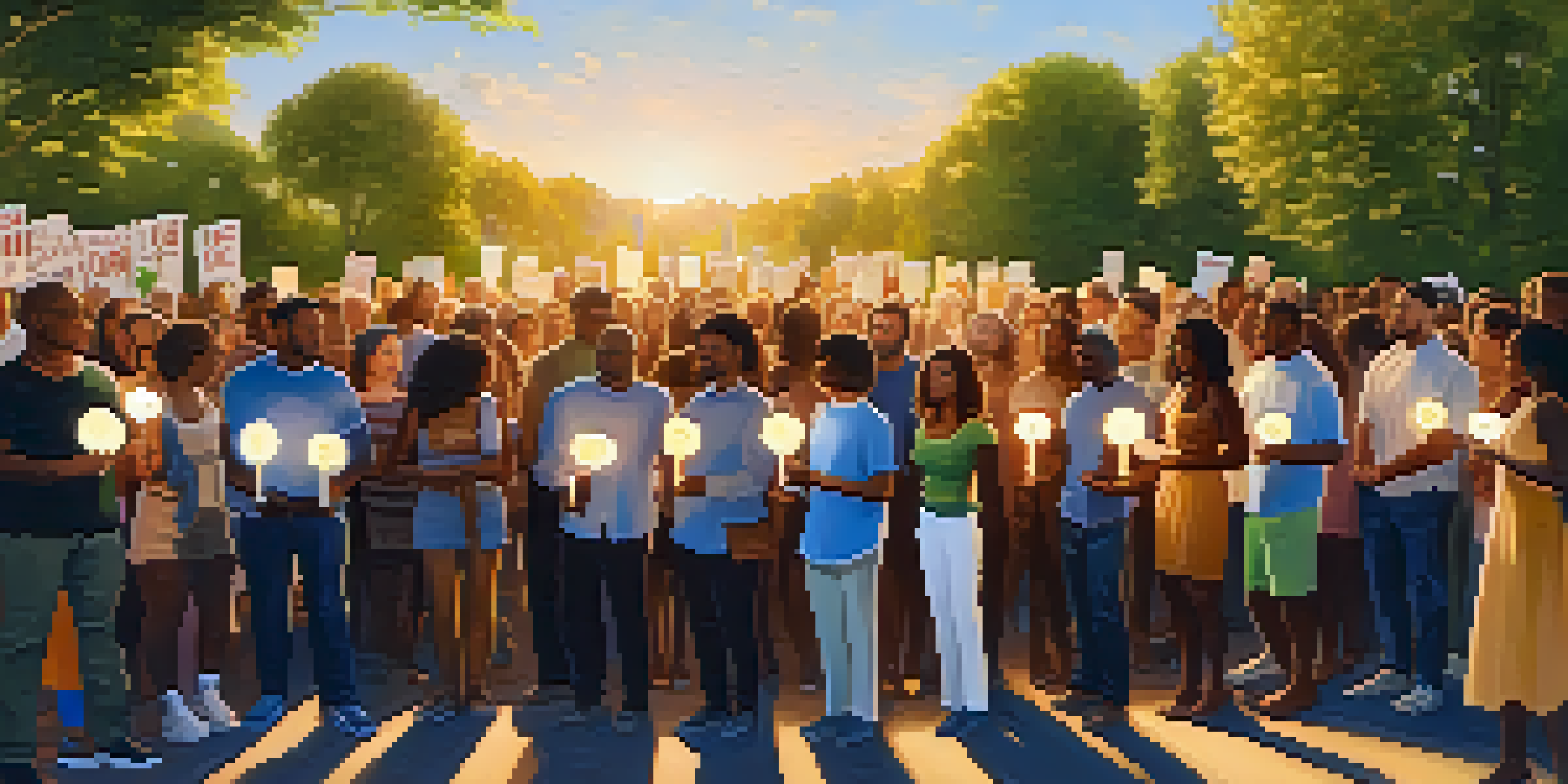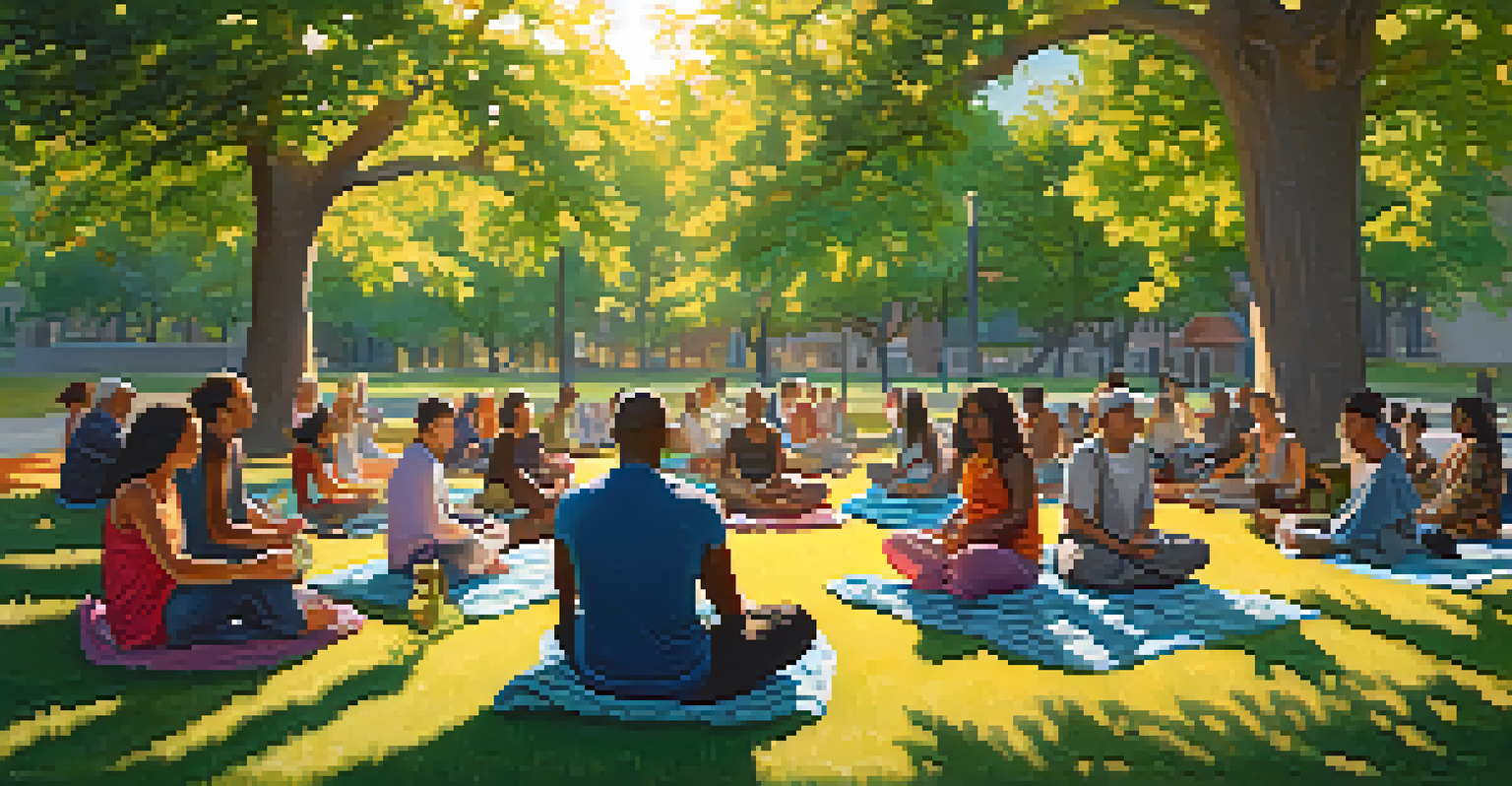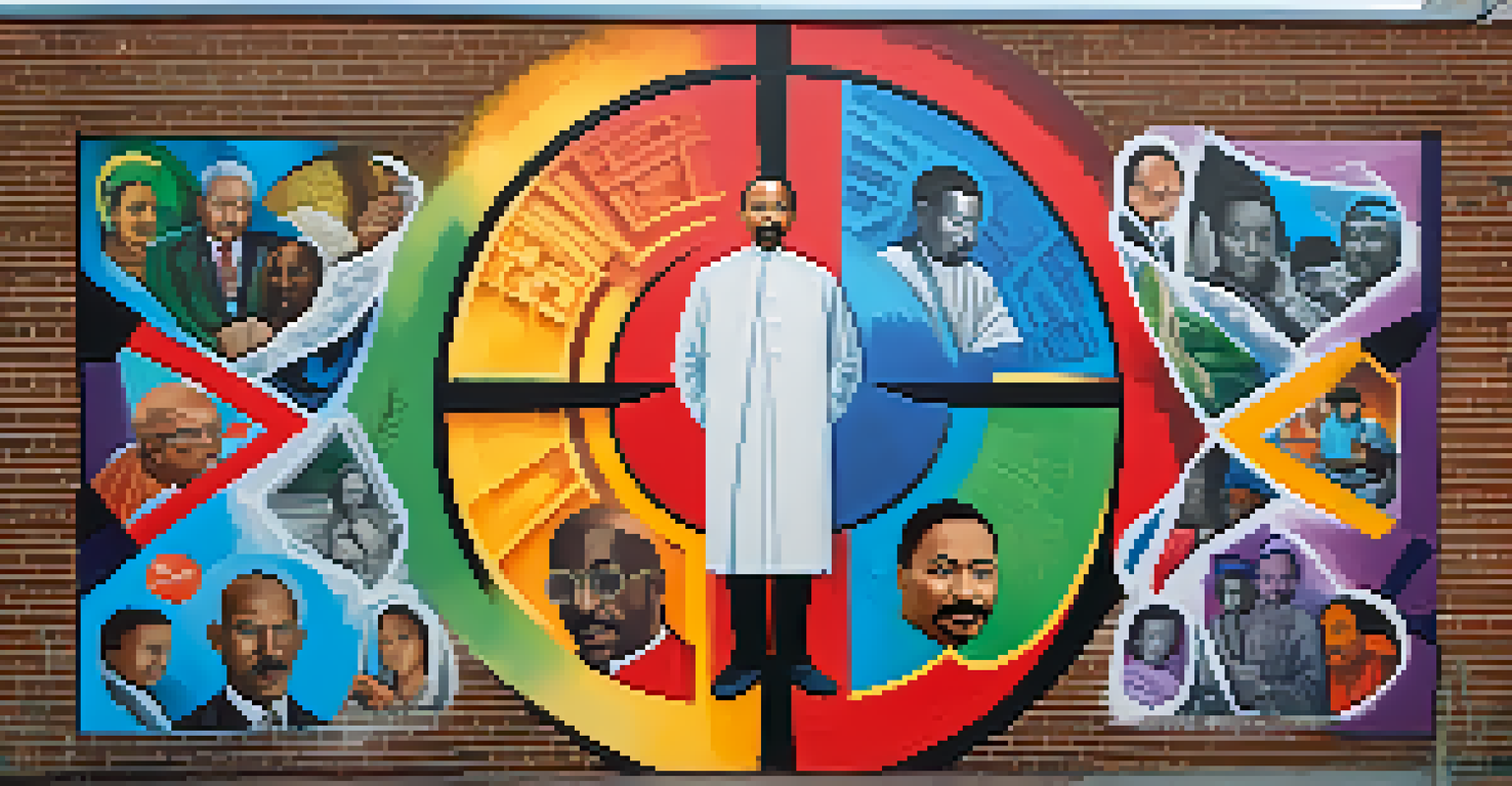Examining the Spiritual Roots of Nonviolent Activism

Understanding Nonviolent Activism Through Spirituality
Nonviolent activism is often rooted in deep spiritual beliefs that promote peace and justice. Many activists draw inspiration from spiritual leaders and texts, finding strength in the idea that love and compassion can overcome hatred and violence. This approach not only seeks change in society but also aims to transform the hearts and minds of individuals involved.
Nonviolence is a weapon of the strong.
The teachings of figures like Mahatma Gandhi and Martin Luther King Jr. exemplify how spirituality can fuel the fire of nonviolent movements. Their convictions were intertwined with their faith, showing that a spiritual foundation can lead to powerful social change. By embracing principles like forgiveness and empathy, these leaders created a blueprint for activism that resonates with many today.
In essence, spirituality offers a lens through which activists can view their struggles. It provides a sense of purpose, guiding individuals towards a common goal of freedom and equality, while encouraging peaceful methods of protest and resistance.
Historical Roots of Nonviolent Movements in Spirituality
Throughout history, many nonviolent movements have been deeply influenced by spiritual philosophies. For example, the Quakers, known for their commitment to peace and social justice, have long advocated for nonviolent resistance based on their religious beliefs. This historical context illustrates that the roots of nonviolence are often intertwined with spiritual traditions.

Buddhism also plays a significant role in the narrative of nonviolent activism. The concept of ahimsa, or non-harming, is a central tenet that has inspired countless activists to choose peaceful methods in their struggles. This spiritual practice encourages individuals to cultivate compassion and mindfulness, leading to a more harmonious approach to activism.
Spirituality Fuels Nonviolent Activism
Many nonviolent activists draw strength from spiritual beliefs that emphasize love and compassion as tools for social change.
The historical intertwining of spirituality and nonviolence showcases a rich tapestry of beliefs that continue to inspire modern movements. By understanding these roots, activists can draw upon a legacy of wisdom that advocates for peace in the face of oppression.
Key Spiritual Principles Guiding Nonviolent Activism
At the heart of nonviolent activism are several key spiritual principles that guide practitioners. These principles include love, compassion, and the belief in the inherent dignity of all individuals. By nurturing these values, activists can create a more inclusive and understanding environment, making their movements more impactful.
Injustice anywhere is a threat to justice everywhere.
Forgiveness is another essential principle that underpins many nonviolent movements. It allows individuals to release anger and resentment, fostering a sense of unity among diverse groups. This spiritual practice not only aids personal healing but also strengthens collective efforts towards social justice.
Lastly, the practice of mindfulness encourages activists to remain present and aware in their efforts. By cultivating this awareness, individuals can respond thoughtfully rather than react impulsively, ensuring that their actions align with their spiritual convictions.
The Role of Community in Spiritual Nonviolent Activism
Community plays a vital role in sustaining nonviolent activism grounded in spirituality. When individuals come together, they create a support system that reinforces their shared values and beliefs. This collective energy can amplify their message and create a more powerful presence in the fight for justice.
Spiritual communities often provide a space for reflection and growth, allowing activists to deepen their understanding of their mission. These gatherings can nurture a sense of belonging, fostering connections that transcend differences and create solidarity among diverse groups. Such unity is crucial in the face of adversity.
Community Amplifies Activist Efforts
A supportive community enhances the impact of nonviolent activism by fostering shared values and solidarity among diverse groups.
Furthermore, community rituals and practices can enhance the spiritual dimension of activism. Whether through prayer, meditation, or communal gatherings, these shared experiences can strengthen bonds and re-energize participants, reminding them of their purpose and the importance of their cause.
Spirituality as a Source of Resilience for Activists
Resilience is crucial for anyone engaged in activism, and spirituality can provide a strong foundation for this resilience. When faced with challenges, activists who draw upon their spiritual beliefs often find renewed strength and hope. This inner resilience helps them to navigate the emotional and physical toll of their work.
Moreover, spiritual practices such as meditation, prayer, or mindfulness can serve as coping mechanisms during difficult times. These practices not only help individuals manage stress but also reconnect them with their core values, reminding them of their commitment to nonviolence and justice.
Ultimately, spirituality can act as an anchor, providing comfort and guidance in turbulent times. This inner strength enables activists to persist in their efforts, even when the path forward seems daunting.
Connecting Spiritual Activism to Modern Movements
Today, many modern movements echo the spiritual roots of nonviolent activism. For instance, the Black Lives Matter movement incorporates principles of love, justice, and community, reflecting the spiritual values that have historically guided struggles for equality. This connection highlights the enduring relevance of spirituality in contemporary activism.
Additionally, environmental activists often draw upon spiritual beliefs to advocate for the earth's protection. Many view the planet as a sacred entity, emphasizing the need for compassionate stewardship and sustainable practices. This spiritual perspective enriches their activism, framing it as a moral imperative.
Resilience Through Spiritual Practices
Spiritual beliefs and practices provide activists with resilience, helping them navigate challenges while remaining committed to their cause.
By weaving spirituality into the fabric of their movements, activists can inspire a broader audience, encouraging individuals to engage with causes that resonate with their personal beliefs and values.
The Future of Nonviolent Activism and Spirituality
As we look to the future, the intersection of spirituality and nonviolent activism will likely continue to evolve. New generations of activists are increasingly seeking holistic approaches that integrate spiritual practices with strategic action. This fusion can lead to innovative methods of resistance that prioritize well-being and community care.
Moreover, the rise of social media and digital platforms has created opportunities for spiritual activism to flourish in new ways. Online communities can share resources, stories, and practices that inspire collective action and spiritual growth. This digital landscape allows for a broader reach and a more inclusive dialogue around nonviolent activism.

Ultimately, the future of nonviolent activism will depend on the ability to adapt and remain grounded in core spiritual principles. By embracing these values, activists can continue to create meaningful change, fostering a world that embodies peace and justice for all.